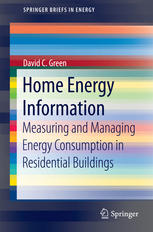

Most ebook files are in PDF format, so you can easily read them using various software such as Foxit Reader or directly on the Google Chrome browser.
Some ebook files are released by publishers in other formats such as .awz, .mobi, .epub, .fb2, etc. You may need to install specific software to read these formats on mobile/PC, such as Calibre.
Please read the tutorial at this link: https://ebookbell.com/faq
We offer FREE conversion to the popular formats you request; however, this may take some time. Therefore, right after payment, please email us, and we will try to provide the service as quickly as possible.
For some exceptional file formats or broken links (if any), please refrain from opening any disputes. Instead, email us first, and we will try to assist within a maximum of 6 hours.
EbookBell Team

0.0
0 reviewsThe book contains the data required to measure and manage energy consumption in residential buildings. This book describes energy information in detail so that any homeowner can measure energy use on a continuing basis, make decisions regarding how to conserve energy, implement improvements, then monitor the results of those improvements. In the past, it has been difficult to collect residential energy consumption data in real-time. This book helps overcome that challenge by teaching readers how to use self-installed data collection devices that monitor consumption of circuits or appliances, along with freely available information to benchmark against other homes in the area. It demonstrates how information derived from many sources, such as the kWh listed on an electric bill, can be combined into simple calculations that illuminate how well conservation efforts are working from day to day, month to month, or year to year. Homeowners have ultimate control over the decision making process required to realize energy savings. This book simplifies the tasks of collecting, calculating and reporting energy information to the homeowner, putting the power to conserve energy in the hands of the people who will ultimately benefit the most directly from conservation efforts.